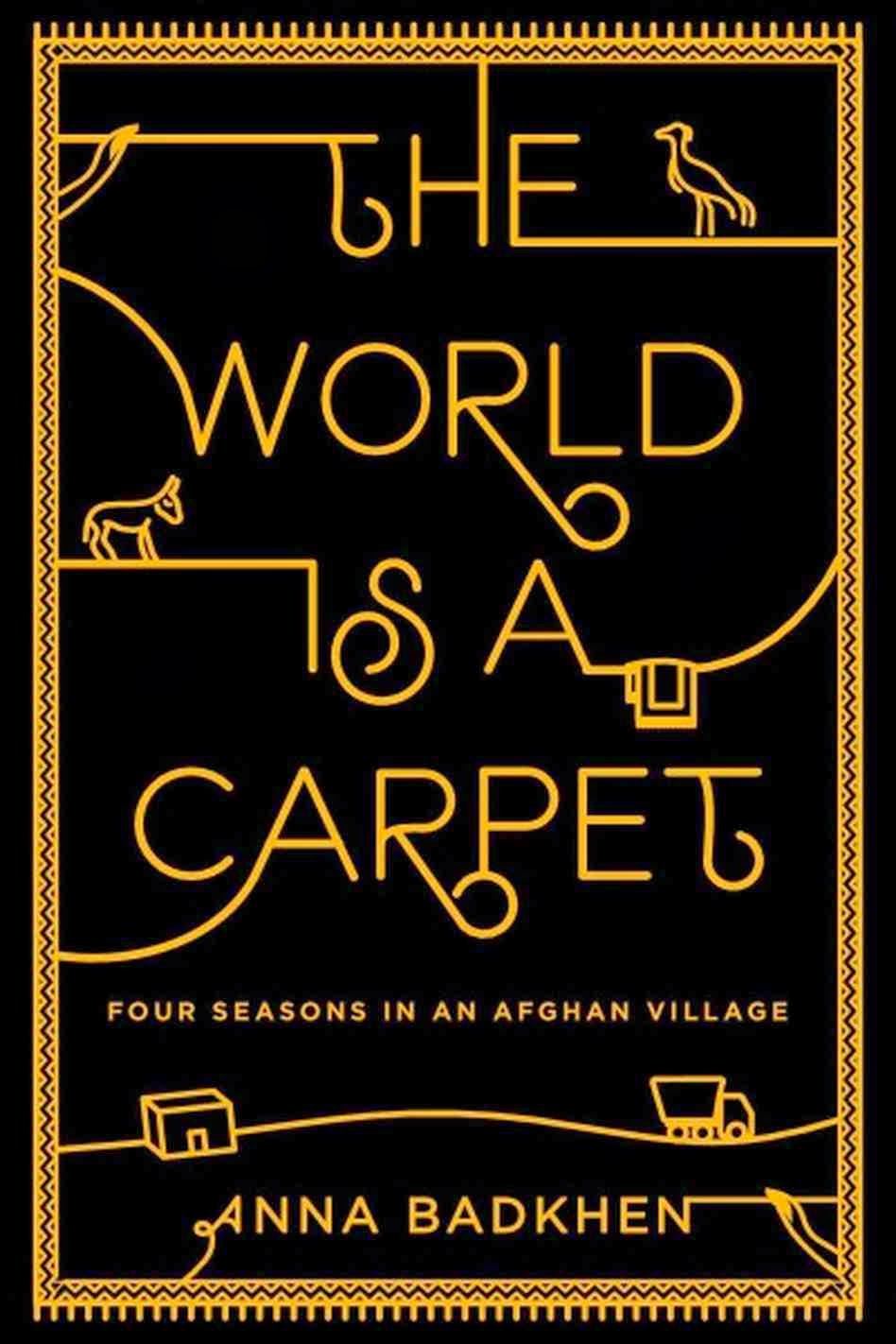A Fort of Nine Towers: an Afghan family story (M)
by Qais Akbar Omar
 "Qais Akbar Omar was born in Kabul in a time of relative peace. Until he
was 7, he lived with his father, a high school physics teacher, and
mother, a bank manager, in the spacious, garden-filled compound his
grandfather had built. Noisy with the laughter of his cousins (with whom
they lived in the typical Afghan style), fragrant with the scent of
roses and apple blossoms, and rich in shady, tucked-away spots where
Qais and his grandfather sat and read, home was the idyllic centre of
their quiet, comfortable life. But in the wake of the Russian
withdrawal and the bloody civil conflict that erupted, his family was
forced to flee and take refuge in the legendary Fort of Nine Towers, a
centuries-old palace in the hills on the far side of Kabul. On a
perilous trip home, Omar and his father were kidnapped, narrowly
escaping, and the family fled again, his parents leading their 6
children on a remarkable, sometimes wondrous journey." publisher
"Qais Akbar Omar was born in Kabul in a time of relative peace. Until he
was 7, he lived with his father, a high school physics teacher, and
mother, a bank manager, in the spacious, garden-filled compound his
grandfather had built. Noisy with the laughter of his cousins (with whom
they lived in the typical Afghan style), fragrant with the scent of
roses and apple blossoms, and rich in shady, tucked-away spots where
Qais and his grandfather sat and read, home was the idyllic centre of
their quiet, comfortable life. But in the wake of the Russian
withdrawal and the bloody civil conflict that erupted, his family was
forced to flee and take refuge in the legendary Fort of Nine Towers, a
centuries-old palace in the hills on the far side of Kabul. On a
perilous trip home, Omar and his father were kidnapped, narrowly
escaping, and the family fled again, his parents leading their 6
children on a remarkable, sometimes wondrous journey." publisherCombat Doctor: life and death stories from Kandahar's military hospital (M)
by Marc Dauphin
 "Combat Doctor presents the stories of the
victims of the War in Afghanistan, as told by the last Canadian Officer
Commanding at the Kandahar Role 3 Multinational Hospital.
In 2009,
Marc Dauphin, an experienced emergency-room physician, served a full
tour at the combat hospital in Kandahar. During his time there, he dealt
with injuries more horrific than he had ever seen during his civilian
experience. He and the Role 3 Hospital's international staff saw an
unparalleled number of severe casualties and yet maintained a survival
rate of 97 percent -- a record for all times and all wars. It is
impossible to remain unmoved by Marc Dauphin's descriptions of those he
treated: the terrified children, the stoic soldiers, those mutilated
almost beyond help. Each story is powerful, vividly told, and unique." publisher
"Combat Doctor presents the stories of the
victims of the War in Afghanistan, as told by the last Canadian Officer
Commanding at the Kandahar Role 3 Multinational Hospital.
In 2009,
Marc Dauphin, an experienced emergency-room physician, served a full
tour at the combat hospital in Kandahar. During his time there, he dealt
with injuries more horrific than he had ever seen during his civilian
experience. He and the Role 3 Hospital's international staff saw an
unparalleled number of severe casualties and yet maintained a survival
rate of 97 percent -- a record for all times and all wars. It is
impossible to remain unmoved by Marc Dauphin's descriptions of those he
treated: the terrified children, the stoic soldiers, those mutilated
almost beyond help. Each story is powerful, vividly told, and unique." publisherThe World is a Carpet: four seasons in an Afghan village (M)
by Anna Badkhen
 " Anna Badkhen first traveled to this country in 2001, as a war
correspondent. She has returned many times since, drawn by a land that
geography has made a perpetual battleground, and by a people who sustain
an exquisite tradition there. Through the four seasons in which a new
carpet is woven by the women and children of Oqa, she immortalizes their
way of life much as the carpet does--from the petal half-finished where
a hungry infant needs care to the interruptions when the women trade
sex jokes or go fill in for wedding musicians scared away by the
Taliban. As Badkhen follows the carpet out into the world beyond, she
leaves the reader with an indelible portrait of fates woven by centuries
of art, war, and an ancient trade that ultimately binds the invaded to
the invader" publisher
" Anna Badkhen first traveled to this country in 2001, as a war
correspondent. She has returned many times since, drawn by a land that
geography has made a perpetual battleground, and by a people who sustain
an exquisite tradition there. Through the four seasons in which a new
carpet is woven by the women and children of Oqa, she immortalizes their
way of life much as the carpet does--from the petal half-finished where
a hungry infant needs care to the interruptions when the women trade
sex jokes or go fill in for wedding musicians scared away by the
Taliban. As Badkhen follows the carpet out into the world beyond, she
leaves the reader with an indelible portrait of fates woven by centuries
of art, war, and an ancient trade that ultimately binds the invaded to
the invader" publisherAn American Bride in Kabul: a memoir (M)
by Phyllis Chesler
 " Twenty years old and in love, Phyllis Chesler, a Jewish-American girl
from Brooklyn, embarked on an adventure that has lasted for more than a
half-century. In 1961, when she arrived in Kabul with her Afghan
bridegroom, authorities took away her American passport. Chesler was now
the property of her husband’s family and had no rights of citizenship.
Back in Afghanistan, her husband, a wealthy, westernized foreign college
student with dreams of reforming his country, reverted to traditional
and tribal customs. Chesler found herself unexpectedly trapped in a posh
polygamous family, with no chance of escape. She fought against her
seclusion and lack of freedom, her Afghan family’s attempts to convert
her from Judaism to Islam, and her husband’s wish to permanently tie her
to the country through childbirth. Drawing upon her personal diaries,
Chesler recounts her ordeal, the nature of gender apartheid—and her
longing to explore this beautiful, ancient, and exotic country and
culture." publisher
" Twenty years old and in love, Phyllis Chesler, a Jewish-American girl
from Brooklyn, embarked on an adventure that has lasted for more than a
half-century. In 1961, when she arrived in Kabul with her Afghan
bridegroom, authorities took away her American passport. Chesler was now
the property of her husband’s family and had no rights of citizenship.
Back in Afghanistan, her husband, a wealthy, westernized foreign college
student with dreams of reforming his country, reverted to traditional
and tribal customs. Chesler found herself unexpectedly trapped in a posh
polygamous family, with no chance of escape. She fought against her
seclusion and lack of freedom, her Afghan family’s attempts to convert
her from Judaism to Islam, and her husband’s wish to permanently tie her
to the country through childbirth. Drawing upon her personal diaries,
Chesler recounts her ordeal, the nature of gender apartheid—and her
longing to explore this beautiful, ancient, and exotic country and
culture." publisher







No comments:
Post a Comment